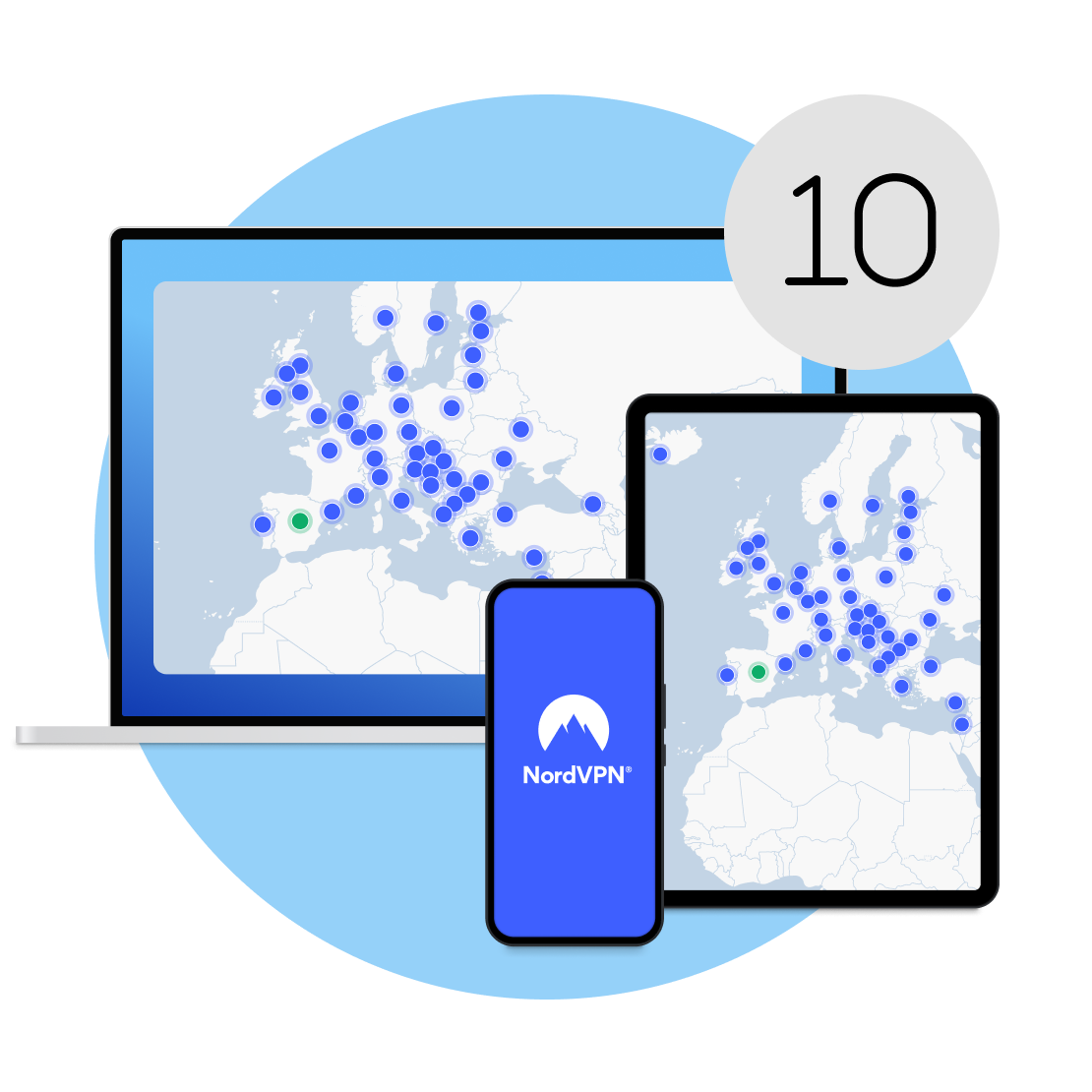·
Navega de forma segura con NordVPN para Amazon Fire
Mejora tu experiencia de navegación con la VPN más rápida.
Protege tu vida digital: reproduce contenido, lee y juega en privado.
Disfruta de la aplicación dedicada de NordVPN en tu tableta Amazon Fire.

Disfruta de NordVPN en todos tus dispositivos
¿Por qué utilizar una VPN en Amazon Kindle Fire?
Lee los libros que más te gustan y accede a los programas que están en boca de todos sabiendo que, gracias al cifrado de última generación, cuentas con una protección total. Tu actividad online no le incumbe a nadie. Que siga siendo así.
NordVPN oculta tu tráfico a tu proveedor de internet para que le resulte más difícil limitar tu ancho de banda y ralentizar tu velocidad de navegación en función de tus actividades (incluso si tienes contratado un ancho de banda ilimitado). No te conformes con menos: disfruta de la velocidad de conexión que has pagado.
Elige entre más de 7300 servidores VPN en 118 países de todo el mundo para acceder a tus programas favoritos de forma segura cuando viajes.
Protege tu tableta aún más
Protege todos tus dispositivos y navega por la web de forma segura: tus datos están a salvo.

No hagas esperar a tu Kindle. NordVPN combina seguridad y velocidad para ofrecerte una experiencia online óptima. Gracias a nuestra infraestructura de servidores en expansión y al revolucionario protocolo NordLynx (basado en WireGuard®), podrás reproducir contenidos y desplazarte por cualquier página sin que nada te pare.
El Kill Switch de VPN está diseñado para garantizar que tu actividad online nunca se vea expuesta. Si la conexión con el servidor remoto se cayese, esta función te desconectaría de la web por completo hasta que la conexión VPN se restableciera.
Instala NordVPN en el router para proteger mucho más que tu tableta. Y la diversión no se limita al hogar: también puedes descargar aplicaciones NordVPN específicas para todas las plataformas principales y proteger hasta 10 dispositivos simultáneamente con una sola cuenta de NordVPN.
Accede a internet sin restricciones con NordVPN
Protege tus datos para que no se expongan, oculta tu número de IP y disfruta de tu contenido favorito con una VPN sin riesgos.
Garantía de devolución de 30 días
Cómo configurar NordVPN para tu tableta Amazon Fire
Puedes proteger tu tableta con NordVPN de dos maneras.
01
Verifica tu router
Anota el fabricante y el modelo de tu router y revisa si son compatibles con NordVPN.
03
Sigue el tutorial
Encuentra las instrucciones paso a paso para instalar NordVPN en tu router, incluidas las guías en vídeo.
Preguntas frecuentes

Disfruta de una experiencia online sin complicaciones con NordVPN
Oculta tu ubicación virtual, obtén una nueva IP, accede a Internet sin restricciones y disfruta de tus contenidos favoritos con una VPN sin riesgos. Si el servicio no te convence al 100 %, avísanos en un plazo de 30 días desde la fecha de la contratación y te devolveremos el dinero.